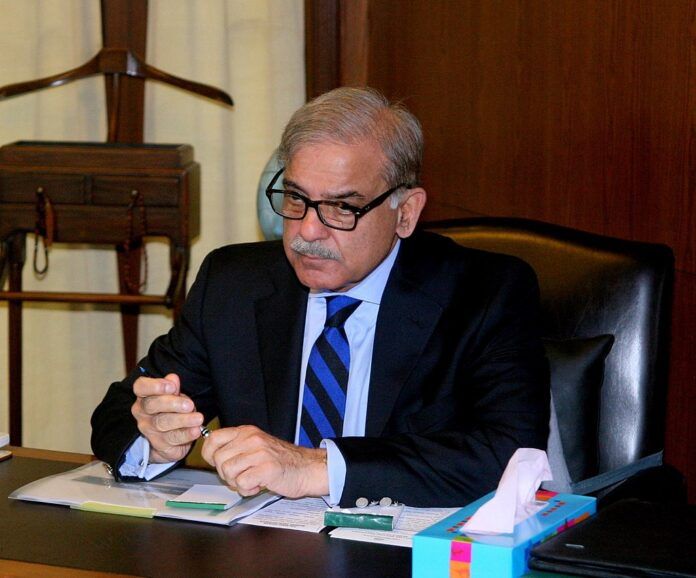Pakistan’s annual inflation rate hits a single-digit figure for the first time in nearly three years, with Prime Minister Shehbaz Sharif praising government policies and vowing continued progress
Prime Minister Shehbaz Sharif announced a significant milestone in Pakistan’s economic recovery on Tuesday, revealing that the country’s annual inflation rate has fallen to 9.6%. This marks the first time in almost three years that inflation has dipped into single digits, reflecting a substantial turnaround from previous soaring rates.
In a statement shared on his official X account, PM Sharif attributed the drop to the government’s ongoing efforts and policy measures. “Pakistan’s annual inflation rate has dropped to 9.6% in August, the first single-digit figure in nearly 3 years. This is not an accident! These are results,” Sharif declared. The announcement comes on the heels of data from the Pakistan Bureau of Statistics (PBS), which shows a notable decrease from the 27.4% inflation rate recorded in August 2023 and a peak of 38% last May.
Embed from Getty ImagesThe reduction in inflation aligns with the reforms implemented under the International Monetary Fund (IMF) bailout programme, which has been crucial for Pakistan’s economic stabilization. The Consumer Price Index (CPI) data revealed that inflation increased by only 0.4% on a month-on-month basis in August 2024, a significant improvement compared to the 2.1% rise in the previous month.
Urban and rural inflation figures also show encouraging trends. Urban CPI inflation decreased to 11.7% year-on-year in August 2024, down from 25.0% the previous year. Rural CPI inflation dropped to 6.7%, a marked improvement from 30.9% in August 2023. These figures reflect the broader impact of the government’s policies on various sectors.
Despite this progress, PM Sharif acknowledged that challenges remain. “Our work is not done, and a lot more needs to be done, but we are making real progress,” he emphasized. The government remains focused on delivering further relief to the common people and addressing ongoing economic challenges.
Price changes for essential food items also played a role in the inflationary trends. Onions, chicken, eggs, and fresh vegetables saw significant month-on-month increases. This fluctuation in food prices highlights the ongoing volatility in key consumer goods, even as overall inflation trends improve.
In related economic news, Moody’s Ratings recently upgraded Pakistan’s credit rating from Caa3 to Caa2, reflecting improved macroeconomic conditions and better government liquidity. This upgrade indicates a reduction in Pakistan’s default risk, attributed in part to the IMF’s staff-level agreement for a $7 billion Extended Fund Facility.
The upgrade is significant as it demonstrates increased confidence in Pakistan’s economic stability and external financing capabilities. However, Moody’s also warned that the country remains highly reliant on timely external financing and continues to face challenges with debt affordability and sustainability.
Analysis
Political:
Prime Minister Shehbaz Sharif’s announcement of reduced inflation rates is a strategic move to bolster his government’s credibility and showcase the success of its economic policies. The drop in inflation provides a significant political win for Sharif, reinforcing his administration’s commitment to economic reform and stability. However, the continued emphasis on the need for more progress indicates that the government acknowledges ongoing challenges. Politically, this achievement could strengthen Sharif’s position and support for his economic policies, but it also places pressure on his administration to maintain and build on these gains.
Social:
The reduction in inflation has direct social implications, particularly for the average citizen who has been struggling with high living costs. Lower inflation can lead to improved purchasing power and provide some relief to households facing financial strain. However, the persistence of price increases in essential food items, despite the overall drop in inflation, highlights the uneven impact of economic policies on different sectors. Socially, the government’s ability to address these disparities and ensure that the benefits of lower inflation are widely felt will be crucial in maintaining public support and social stability.
Racial:
While the inflation data itself does not directly address racial issues, the socioeconomic impacts of inflation often disproportionately affect marginalized communities. Lower inflation rates can help reduce financial pressures on these communities, but the uneven distribution of price changes for essential goods could still impact them significantly. Ensuring that economic policies address these disparities and provide targeted support to vulnerable groups will be important for achieving more equitable social outcomes.
Gender:
The impact of inflation on gender equity is significant, as women, particularly in lower-income households, often bear a greater burden of economic hardships. The drop in overall inflation may provide some relief, but the continued rise in prices of essential goods like food can disproportionately affect women and children. Addressing these gender-specific impacts through targeted support and inclusive economic policies will be essential in promoting gender equity and ensuring that the benefits of reduced inflation are equitably distributed.
Economic:
Economically, the reduction in inflation to 9.6% represents a positive development for Pakistan, reflecting the effectiveness of recent reforms and policy measures. The improvement in macroeconomic conditions and the Moody’s credit rating upgrade are indicative of growing confidence in Pakistan’s economic management. However, the persistence of high food prices and reliance on external financing highlight ongoing vulnerabilities. The government’s challenge will be to sustain these positive trends while addressing structural issues and ensuring long-term economic stability.
